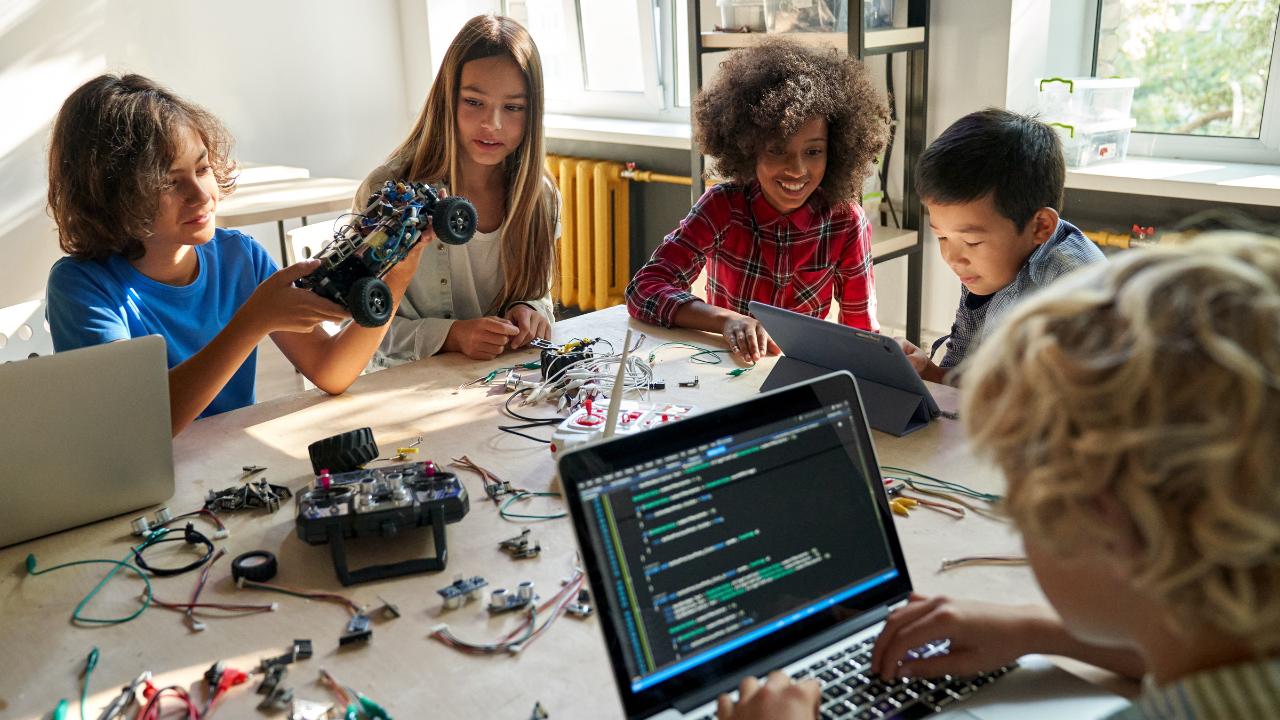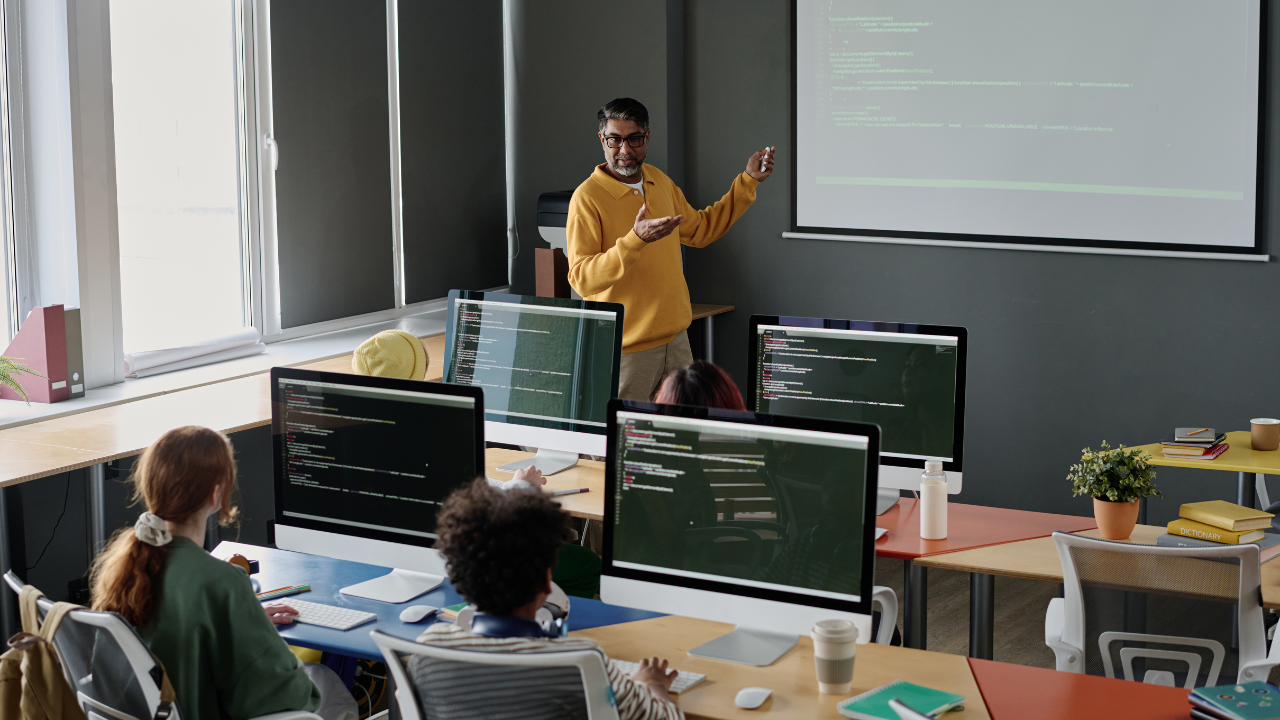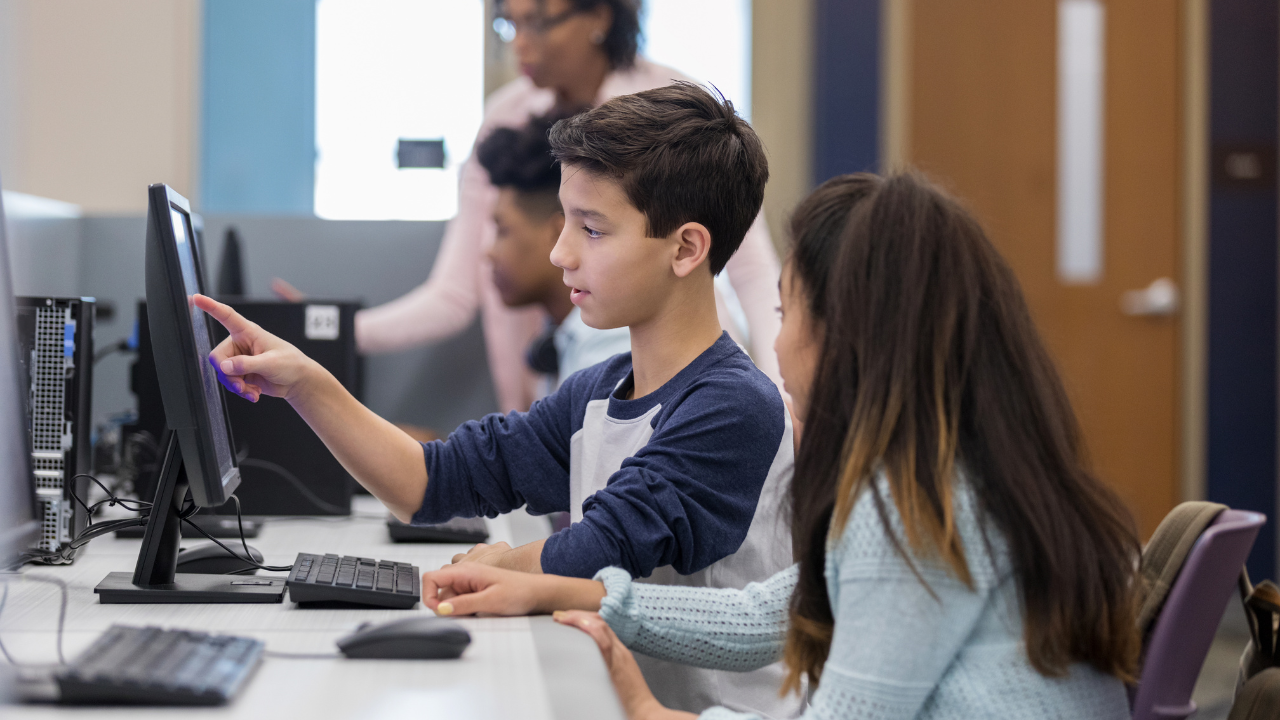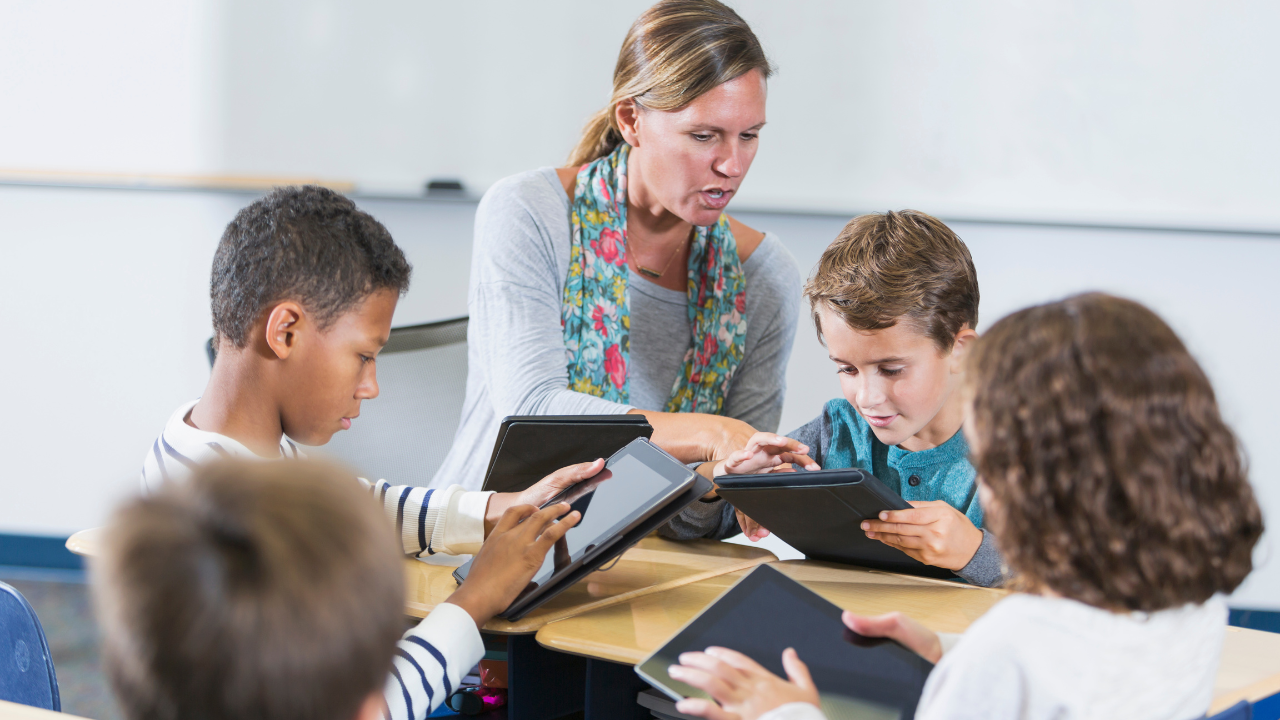
The Maine Department of Education approaches new technologies using an asset-based lens. We know that technology, once adopted by the masses, becomes a part of education. Technology prohibitions prevent students from learning critical skills to function in today’s technology-enriched society and do not prepare them for the reality they will face as they move beyond their primary education. Recognizing this, Maine DOE focuses its efforts on exploring the impact of technology on individuals and groups to assess how to best support the healthy and safe use of it. From providing guidance on digital well-being to exploring what skills students need to be prepared for upcoming advancements in technology, there are overarching skills that are both necessary and relevant to all technology use; by focusing on these foundational principles, the Department works to ensure that all students and educators are equipped and prepared to effectively engage with technology as it changes and develops.

Acceptable Use Policies
Acceptable Use Policies for technology lay the foundation for responsible technology use in Maine schools. They should evolve alongside the tools we use and the challenges we face.
Consider the following best practices for AUPs
- Include guidance on devices (including personal devices), internet access, social media, AI, digital citizenship, cybersecurity, and data privacy.
- Engage students, staff, and families in AUP development and review.
- Emphasize the importance of digital citizenship, accountability, and clear expectations.
- Reframe AUPs as a teaching tool and a working toolkit, not just rules and regulations.

Artificial Intelligence (AI) In Education
AI is reshaping how we learn and teach. Maine supports thoughtful, ethical integration of AI in education, while helping students understand how these tools work and how to use them responsibly.
Consider the following best practices for AI in Education
- Use AI to support—not replace—human connection and critical thinking.
- Teach students to evaluate and question AI-generated content.
- Ensure transparency and clear boundaries in the classroom use of generative AI tools.
- Promote equity, privacy, and digital literacy in all AI-related instruction.
Maine DOE AI Guidance Toolkit is designed to empower the confident integration of AI tools and foundational knowledge in Maine classrooms, preparing our students to thrive in an AI-influenced world. This toolkit is designed to help empower schools to make informed decisions about AI in education technology and contains critical information for anyone engaging with AI that sets foundational understandings for the effective integration of AI in education and beyond.

Cell Phones & Personal Devices in Schools
Creating healthy boundaries around personal devices supports focus, wellness, and positive school culture. The Maine Department of Education encourages districts to adopt clear and developmentally appropriate expectations for mobile phone and personal device use.
Consider the following best practices for Cell Phones and Personal Devices in Schools
- Establish policies that reflect local values while supporting learning environments.
- Involve students and families in creating shared agreements around personal device use.
- Address the impact of device use on attention, relationships, and mental health.
- Use personal devices intentionally and with purpose through integrated instruction.
- Emphasize the importance of digital wellness and digital citizenship

Computer Science Education
Computer science education provides a critical baseline of skills for all students to be successful in believes computer science is for all students. CS empowers learners to think critically, solve problems creatively, and understand the digital systems that shape our world.
Consider the following best practices for AUPs
- Integrate CS across all grade levels and subject areas.
- Focus on equity, inclusion, and access—especially for underrepresented groups.
- Emphasize computational thinking, data science, coding, and cybersecurity.
- Provide educators with tools and training to confidently teach CS concepts.

Cybersecurity in Schools
In today’s connected world, cybersecurity is essential. Maine schools are responsible for protecting student data and maintaining secure digital environments.
Consider the following best practices for Cybersecurity in Schools
- Conduct regular security assessments and keep software and devices updated.
- Implement multi-factor authentication, strong passwords, and secure backups.
- Educate staff and students about phishing, scams, and social engineering threats.
- Encourage a culture of shared responsibility; cybersecurity is everyone’s job.

Digital Citizenship & Wellness
Maine educators play a vital role in helping students navigate the digital world with integrity, balance, and purpose. Digital citizenship and wellness are essential components of a healthy learning environment; both online and offline.
Consider the following best practices for Digital Citizenship and Digital Wellness
- Teach students to act responsibly and ethically in digital spaces, including how to communicate, share, and participate in online communities.
- Promote awareness around managing screen time, reducing digital distractions, and protecting mental and emotional well-being.
- Embed conversations about media literacy, digital footprints, and online reputation into everyday instruction.
- Model respectful, reflective, and intentional technology use as educators and school communities.
Contact
Maine’s Learning Through Technology Team is here to support schools with implementation, planning, and professional learning. We believe in collaboration and continuous improvement to ensure technology works for all learners.
Email: doe-ltt@maine.gov